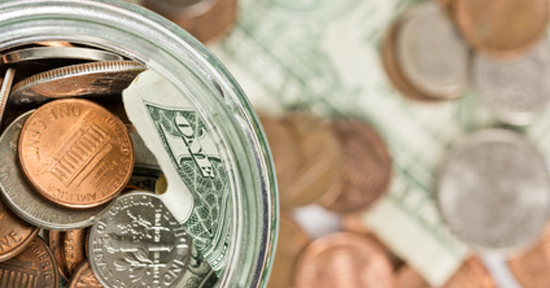New Survey: 39.4% Have Less Than $500 in Savings
Emergency Funds Are Low for Most
Four in 10 people have not set aside at least $500 in savings, according to a new 2014 survey by CreditDonkey.com, a credit card comparison website. That leaves a very small safety net for emergencies and is pretty risky. For those with lots of assets or large families, $500 can go very quickly in a crisis. Just one week out of work or a broken-down car could send those without an emergency fund into an ugly place — one where they are overly dependent on credit or become delinquent payers on the debt they have already accrued.
 |
Unfortunately, most of the respondents aren't doing that much better to make up for unforeseen mishaps. Just over half (52%) of the respondents to the CreditDonkey survey said they have under $1,000 in their current savings. Only 19% reported having $10,000 or more. That latter amount is a financial cushion that can be tough for many people to build up, but it definitely makes emergency spending situations less stressful and easier to handle when they inevitably crop up.
A sudden flat tire or a leaking kitchen appliance, for instance, doesn't really fall into any category in our budgets, especially if we haven't built any wiggle room into our budget or savings accounts. An emergency fund is a godsend for those unforeseen occurrences.
- 60.6% of respondents have "more than $500 in savings at the moment"
- 47.6% of respondents have "more than $1,000 in savings at the moment"
- 18.6% of respondents have "more than $10,000 in savings at the moment"
In other words, 39.4% do not have more than $500 in savings at the moment. 52.4% do not have more than $1,000 in savings at the moment.
One Month's Worth of Expenses Is the Norm
Unexpected loss of income, whether from job loss or illness, is an emergency circumstance that could force you to rely on your savings. In such a situation, if you don't have enough to cover at least a month's worth of expenses, you could end up with some serious money troubles that could take a long time to recover from.
Most people (59%) who participated in the 2014 survey said they have only enough savings to cover one month's expenses. A third said they could handle three months' worth of expenses, and 18% have enough money to cover six months.
- 59.1% of respondents "have enough money saved to cover one month of expenses"
- 34.3% of respondents "have enough money saved to cover three months of expenses"
- 18.1% of respondents "have enough money saved to cover six months of expenses"
In other words, 40.9% do not have enough money saved to cover one month of expenses. 65.7% do not have enough to cover 3 months of expenses.
Ways to Boost Your Savings
- Always have a shopping list. Whether you're going grocery shopping or looking for new clothing, it's helpful to have a list to keep you on track. Take a little time before you head to the store to jot down what you plan to buy. That'll make it easier to resist the urge to throw in those chocolate chip cookies or new pair of shoes that catch your eye but weren't on your list.
- Use coupons and promo codes. Before making a purchase, search the Internet and Sunday paper for coupons. You may get lucky and find a few for the items on your list. Combine those coupons with a store sale, and you can save even more money.
- Distinguish needs from wants. At the end of the day, adding money to your savings will come down to having discipline. Cut back whenever you can by separating your needs from your wants. We all need to eat, but dining out regularly isn't necessary. We have to have clothes but they all don't have to be designer brands. You get the idea. Before you buy something, make sure you really need it.
Given how unpredictable life is, we can never be 100% prepared for everything, but having money saved for whatever may come is both wise and safe. We can't know what uncertainties are ahead, but we can do our best to be financially ready.
(CreditDonkey.com surveyed 1,235 Americans, age 18 and over, between January 10 and January 13, 2014.)
Jasmine Williams is a contributing writer at CreditDonkey, a credit card comparison and reviews website. Write to Jasmine Williams at jasmine@creditdonkey.com. Follow us on Twitter and Facebook for our latest posts.
Read Next:
